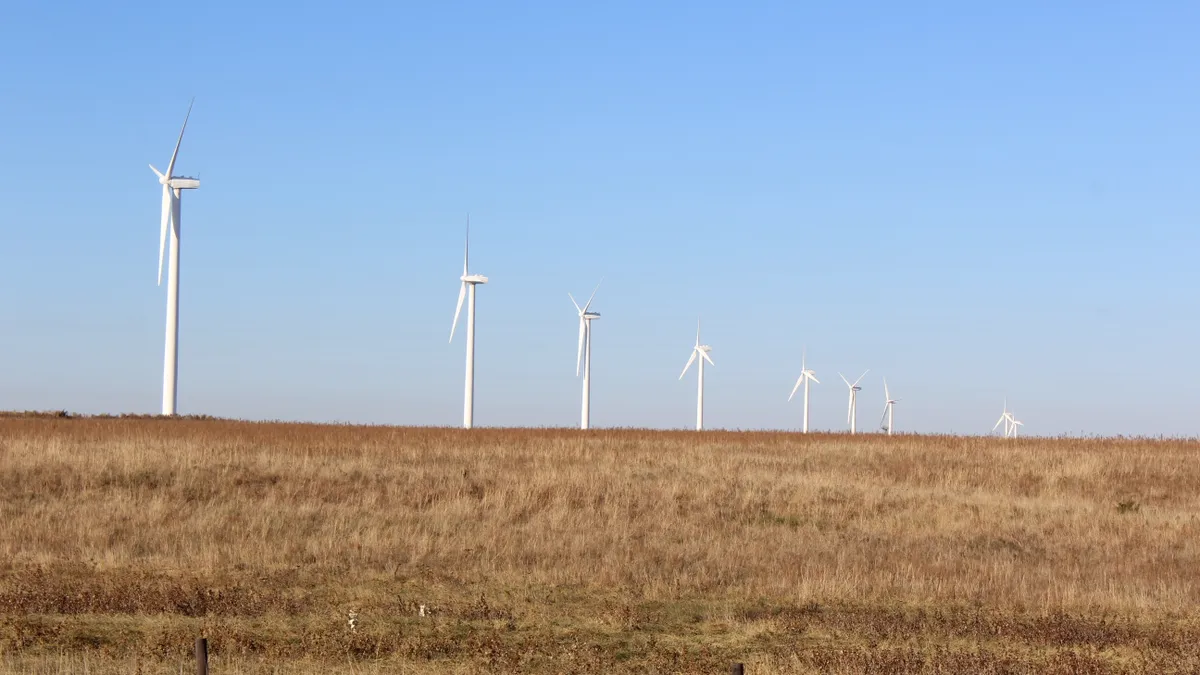Dive Brief:
-
COVID-19 should encourage, not prevent, utility clean energy investments, Xcel Energy Chairman and CEO Ben Fowke said during the National Association of Regulatory Utility Commissioners' (NARUC) Summer Summit on Tuesday.
-
"In Minnesota, we're building solar ... and we're not known as the solar capital in the United States. The fact of the matter is the technology's fallen in price so much that it works just about anywhere," said Fowke, who is also chairman of utility trade group Edison Electric Institute. Although transmission "bottlenecks" and other barriers exist "that's just a matter of will, not a matter of the technology or the underlying economics," he said.
-
Xcel in response to the pandemic is accelerating the spending of almost $3 billion in planned renewable energy investments in Minnesota in order to spur job growth and economic recovery. Fowke suggested utilities should consider a similar strategy. "The utility industry stands ready to help overcome some of the economic difficulties we've all experienced with COVID-19," he said.
Dive Insight:
Although the renewable energy industry has faced challenges due to the COVID-19 pandemic, the utility industry has remained largely resilient, said Fowke.
"On the COVID side ... I think our industry is doing a very good job moving forward while maintaining a safe workforce, and of course, keeping the lights on," he said. The main issue renewable energy has faced, said according to Fowke and American Council on Renewable Energy CEO Gregory Wetstone, has been qualifying for tax credits in time as projects continue to see delays.
Unemployment in the renewable energy sector has largely been skewed toward the residential side, while utility-scale renewables have mainly seen impacts through availability of tax equity and finance, said Wetstone. Those issues have been somewhat mitigated by changes made at the Treasury Department, through extending timelines for certain deadlines, but ACORE and others are continuing to push Congress for more, he said.
Xcel has seen similar delays, said Fowke, though they haven't been detrimental to any projects
"I think it's fair to say that COVID has had an impact on us," he said. "We have seen some delays with some of our wind farms [from] the supply chain disruption. Fortunately, we still qualify for the 100% production tax credits for our customers because of the safe harbor extension … So things are going okay at Xcel, and we're looking forward to being able to be part of the solution to get the economy rolling again."
The utility's nearly $3 billion accelerated capital expenditure investment is expected to generate about 5,000 jobs in the state, he said, and is in response to the Minnesota Public Utilities Commission's request earlier this year that utilities get involved in the state's recovery process.
"Specifically, it accelerates some investments in the grid that are necessary and that we plan to do," he said. The move also spends almost $1.8 billion in repowering some of its wind farms with newer technology, investing in almost 500 MW of solar energy to be installed around its Sherco coal plant and supporting rooftop solar programming for low-income customers.
Xcel has a goal of 100% carbon-free power by 2050. As part of that strategy, the utility has been pushing a "steel for fuel" strategy, that invests heavily in wind power.
"The 'steel' is those wind farms and the 'fuel' is the fact that as we build these wind farms, the levelized cost of energy of those wind farms is less expensive than fossil alternatives, even in a low [cost] natural gas world," he said. In 2050, the utility expects its power mix to be 80% renewable energy with the remaining 20% coming from an unknown dispatchable, carbon-free source. But Fowke said the urgency for Xcel and other utilities to reach that 80% is here and now.
"The important thing is we need to get started today. And we need to recognize the fact that we can't do it with 100% renewables," he said.
"But we've got a long ways to go. ... Let's get to this renewable saturation, then we turn to, at the same time, we're developing the technologies to get that last 20%."
Correction: Ben Fowke is chairman of the Edison Electric Institute. A previous version of this story had an incorrect title.














